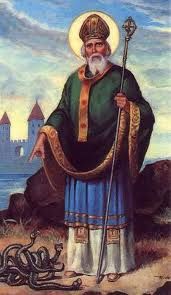“Punting the Pundits” is an Open Thread. It is a selection of editorials and opinions from around the news medium and the internet blogs. The intent is to provide a forum for your reactions and opinions, not just to the opinions presented, but to what ever you find important.
Thanks to ek hornbeck, click on the link and you can access all the past “Punting the Pundits”.
Follow us on Twitter @StarsHollowGzt
Paul Krugman: That Old-Time Whistle
There are many negative things you can say about Paul Ryan, chairman of the House Budget Committee and the G.O.P.’s de facto intellectual leader. But you have to admit that he’s a very articulate guy, an expert at sounding as if he knows what he’s talking about.
So it’s comical, in a way, to see Mr. Ryan trying to explain away some recent remarks in which he attributed persistent poverty to a “culture, in our inner cities in particular, of men not working and just generations of men not even thinking about working.” He was, he says, simply being “inarticulate.” How could anyone suggest that it was a racial dog-whistle? Why, he even cited the work of serious scholars – people like Charles Murray, most famous for arguing that blacks are genetically inferior to whites. Oh, wait.
Joseph E. Stiglitz: On the Wrong Side of Globalization
Trade agreements are a subject that can cause the eyes to glaze over, but we should all be paying attention. Right now, there are trade proposals in the works that threaten to put most Americans on the wrong side of globalization.
The conflicting views about the agreements are actually tearing at the fabric of the Democratic Party, though you wouldn’t know it from President Obama’s rhetoric. In his State of the Union address, for example, he blandly referred to “new trade partnerships” that would “create more jobs.” Most immediately at issue is the Trans-Pacific Partnership, or TPP, which would bring together 12 countries along the Pacific Rim in what would be the largest free trade area in the world. [..]
Controversy has erupted, and justifiably so. Based on the leaks – and the history of arrangements in past trade pacts – it is easy to infer the shape of the whole TPP, and it doesn’t look good. There is a real risk that it will benefit the wealthiest sliver of the American and global elite at the expense of everyone else. The fact that such a plan is under consideration at all is testament to how deeply inequality reverberates through our economic policies.
Worse, agreements like the TPP are only one aspect of a larger problem: our gross mismanagement of globalization.
Robert Kuttner:
The Democrats’ Obama Problem
With the loss of a close House special election in Florida, the entry of several strong Republican contenders in close Senate races, and continuing fallout from flaws in the Accordable Care Act, Democrats are in a panic about their president dragging down the Democratic ticket in this November’s mid-term elections.
Many Democrats have joined Republicans in criticizing Obama Care. Several Democratic incumbent senators in swing states have already moved to distance themselves from President Obama in key confirmation votes. [..]
It’s a tricky business when a president’s unpopularity hurts members of his own party. If a Democratic candidate criticizes him, the president and his party appear even weaker. But supporting an unpopular president does rub off on down-ticket officials.
What to do?
Richard (RJ) Eskow and Robert Fowler: Dear Abby: An Open Letter to MSNBC’s Huntsman About Social Security
Last week MSNBC’s Abby Huntsman expressed some strong opinions about Social Security. That’s her right and her privilege. Unfortunately, she also made some inaccurate and misleading statements. (See Michael Hiltzik in the Los Angeles Times for details.)
As the saying goes, we are entitled to our own opinions but not to our own facts. We have written this open letter in order to ask for a correction.
Dear Abby:
We’re writing you as members of two different generations — Boomer and Millennial — to ask you for an on-air correction to your recent segment on “The Cycle” focused on millennial and earned benefit programs. It was frustrating to see you unquestioningly repeat so many misleading talking points about one of our nation’s most successful programs: Social Security.
Even more importantly, it was disappointing to see you repeat the phony claim that there is a “generational war” between the young and the old. The real “war” in this country is between the haves and the have-nots, and it’s no secret who’s winning that one. In fact, this notion of a “generational war” was dreamed up in the think tanks and PR firms of billionaires, so that credulous journalists, politicians, and yes, news anchors, would pick it up and repeat it endlessly.
Norman Solomon” When hope turns rancid: LBJ and Obama
Hope makes history. So does betrayal of hope.
Early in his presidency, Lyndon Johnson inspired enormous hope. But the promise for a Great Society imploded – and disappointment jolted many former supporters, with trust and optimism turning into alienation and bitterness. The negative ripple effects lasted for decades.
Fifty years after Johnson entered the White House, the corrosive aspects of his legacy are easy to discern. A political base for progressive social change eroded as he escalated the Vietnam War and bought time with shameless deceit. For many people, distrust of leaders became the essence of realism. [..]
Forty years later, the new presidency of Barack Obama was awash in a strong tide of good will, comparable, in its own way, to the wave of public sentiment that lifted Johnson as the new president after the Nov. 22, 1963, assassination of John F. Kennedy. Obama had run and won on hope, and his victory – while not of Johnson’s landslide proportions – provided major momentum.
David Wise: Can Congress control the CIA?
The current fight between the Senate Intelligence Committee and the CIA – each accuses the other of spying on it – is part of the deep, continuing struggle between the legislative and executive branches of government over the wide-ranging power of the intelligence agency in the post-9/11 world.
The immediate dispute is about the committee’s lengthy study of the CIA’s harsh interrogation policies, used during the Bush administration. But underlying all the charges and counter-charges is a larger question: Can Congress genuinely exercise its authority if the intelligence agencies can classify, and so control, the committee’s oversight efforts?
Ari Melber: Our fierce fight over torture
The new Congress versus the CIA battle over “hacking” Senate computers and “spying” isn’t about surveillance. It’s about torture.
We have never had a full reckoning for our government’s use of torture on terror suspects after September 11. There were no prosecutions of military officers or senior officials. (One soldier was imprisoned for abuse at the Abu Ghraib prison, former Corporal Charles Graner, while four officers received administrative demerits, not prosecution.) Remarkably, there has not even been a full release of classified government investigations into U.S. torture. It’s hard to get accountability in the dark.
That repressed history is the real context for the remarkable fight that spilled into public view when Senator Dianne Feinstein (D-Calif.) spoke on the Senate floor on Tuesday.

 On this day in 461,
On this day in 461,  This week’s Sunday Train features a piece from
This week’s Sunday Train features a piece from 


 On this day in 1802,
On this day in 1802,
Recent Comments